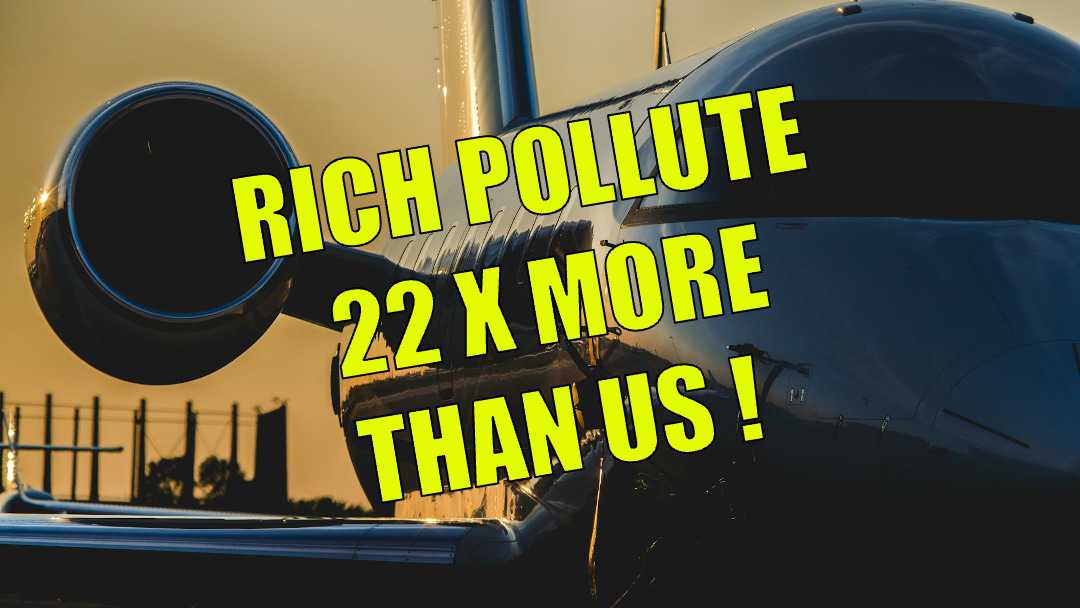Outrage as Britain’s richest drive climate chaos while the poorest pay the price
Think tank warns the wealthy are on course to spew out 22 TIMES MORE travel emissions by 2035—while ordinary families face higher fares and shrinking options
Britain’s wealthiest households are fuelling a climate scandal that could push the country off track for its net-zero targets while the poorest families are unfairly left to foot the bill.
A bombshell report by the Institute for Public Policy Research (IPPR) has revealed that the richest 4% of UK households are on course to pump out a staggering 22 TIMES MORE carbon from travel than the poorest families by 2035. This yawning gap—already obscene today at 20 times—is set to grow even wider, unless urgent action is taken.
The figures expose what many struggling families already feel in their bones: that the rich, with their endless flights, luxury cars and lavish lifestyles, cause the lion’s share of climate damage, while everyone else is told to tighten their belts, pay more for travel and cut back.
The great divide
The gulf in emissions is being driven by the sheer freedom of the affluent to travel as they please. On average, the richest travel six times further every year than the poorest—hopping into cars at will, jetting off abroad, and cruising through life with little thought for the consequences.
By contrast, Britain’s lowest-income families are already making the biggest sacrifices. Many are cutting car use because they simply can’t afford spiralling petrol costs or are forced onto public transport that keeps getting more expensive. Rail and bus fares have soared, hitting those least able to pay.
And while the wealthy will glide seamlessly into the age of electric cars, enjoying cheaper running costs and tax breaks, millions on low incomes remain trapped, unable to afford EVs, while still being clobbered by higher fuel duty and ticket prices.
For yet another eye-popping statistic, one recent study shows that if we all generated carbon emissions like the richest 1%, the much-famed limit of 1.5 °C degrees global warming would already have risen to a civilisation-ending 6.7 °C, and if we polluted like the richest 0.1% it would be 12.2 °C. In other words, we’d be burned to a crisp and dead as a doornail.
Government failure
The report makes one thing clear: the government’s current approach is failing ordinary people. Ministers are placing virtually no demands on the biggest polluters. Instead, their policies allow traffic to rise by 12% by 2035, all while lecturing families about doing their bit.
Stephen Frost, IPPR’s head of transport policy, said the situation was intolerable: “The richest households are driving the bulk of emissions, and they have the greatest capacity to change. Fairness isn’t a barrier to climate action—it’s the key to unlocking it.”
A fairer path
The think tank sets out a bold alternative. Its “fairer pathway” would slash traffic by 25%, cut emissions faster, and—crucially—make transport more affordable for ordinary households.
It calls for billions more investment in buses and cycle routes, a halt to airport expansion and new road building, and reform of fuel duty to reflect the true environmental cost of petrol and diesel. The focus would be on reining in unnecessary flights and excessive car use by the richest, while ensuring everyone else benefits from cleaner, cheaper transport.
The real scandal
The truth is stark: Britain’s poorest are making sacrifices they didn’t cause, while the wealthiest continue to pollute with impunity. If nothing changes, it will be ordinary families—not private jet owners and second-home holidaymakers—who bear the pain of climate action.
And unless the government finally gets tough on the richest polluters, the UK risks not only missing its climate goals, but deepening an inequality that is already poisoning public trust.
The question now is simple: will ministers stand up to the wealthy elite wrecking the planet or keep punishing the people least to blame?



